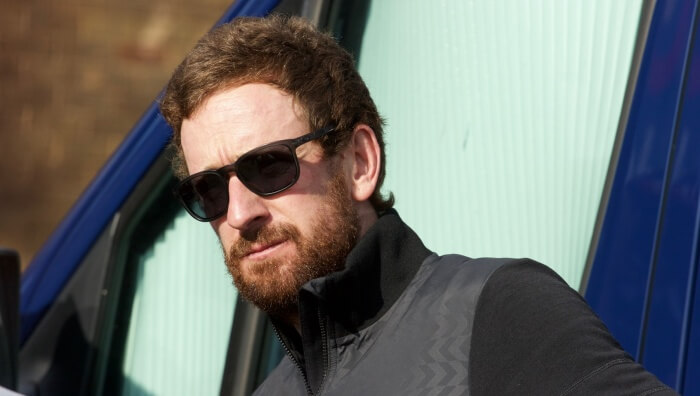Rio is the most social Olympic Games yet and brands are falling over themselves to connect with young people through the event. Here's how they're doing it.
Rio Olympics: An Opportunity To Engage Millennials And Gen Z
Rio is the most social Olympic Games yet and brands are falling over themselves to connect with young people through the event. Here's how they're doing it.

Millennials have been the focus for marketers for years chasing a spending power of $2.45 trillion. But, it’s time to shift our focus and welcome the new kids on the block, Gen Z. At nearly 70 million in size and growing, Gen Z will soon outnumber their millennial counterparts, representing 40% of all consumers by 2020.
However, despite impressive stats millennials and Gen Z are extremely hard to reach audiences. So, what better opportunity for brands than the Olympics - a global stage that surpasses borders, geography and language barriers; a passion point for the majority, and, according to a Crowdtrap study, “the most social Olympics yet”.
This is only the second summer the Olympics has taken place during the age of social media. For millennials and Gen Z it is a step in the right direction as they admit they will engage extensively on social platforms. Snapchat is a particular focus - with over 100 million active users, 32% of millennials and Gen Z viewers said they would share Olympic content through the app.
The ‘social Olympics’ in part has only been made possible through the relaxation of Article 40. Non-sponsors are now able to run Olympic themed campaigns, joining the global conversation for the first time. For the athletes and fans this has created an Olympics of access, inclusivity and engagement. For the brands however, it has opened up a competitive playing field fighting for audience engagement.
Here are 5 key considerations that brands can learn to engage and win with millennial and Gen Z audiences at the Olympics.
1. Audiences are no longer willing to be talked at
Millennials and Gen Z engage with brands that give them the opportunity to co-create. Attention spans are shortening and consumers are becoming increasingly savvy, creating their own content and sharing it with those alike. To become part of their conversation don’t expect them to sit idly on the sidelines, create a platform that gets them involved in the games alongside you.
Samsung’s ‘Ear to the Ground’ campaign invited fans to take part in the 70-day torch relay. Fans were encouraged to tag themselves in crowd shots taken after the ‘Big Cheer’ entertainment shows. The photos were then available online to be tagged, involving fans in an ongoing conversation with Samsung at the heart.
2. Fans want brands to live, play and act in the world as they do
A study by Crowdtap revealed that millennials and Gen Z are two times more interested in the cultural chatter that surrounds the games. They want brands to connect with them through human emotions, communicating a personality they can engage with.
Brands such as Skins - an Australian sportswear brand – used emojis to cross language barriers in a fun and playful way. P&G on the other hand used human emotions in their new film ‘Strong’ that focuses on emotional tributes to mums on an athlete’s Olympic journey.
3. Brands are expected to align their Olympic presence to the brand core
Millennials and Gen Z care about purpose past profit, transparency and being authentic to the core. They have grown up in a world where dishonesty and mistrust are not tolerated and they intend to bring this attitude with them on their journey.
Brands must consider how they truly fit into the Olympic narrative without compromising their core. If there is no link between your content and your brand prepare to be called out for an ungracious promotion.
AirBnb became the Olympics first alternative accommodation sponsor. The brand remained authentic to ‘Belong Anywhere’ by creating a video campaign using no actors or scripts just authentic Rio hosts asking fans to #Staywithme.
4. Meaningful experiences matter more than tangible products
Millennials and Gen Z are placing a greater focus on meaningful experiences over tangible products. They welcome brands that support them in this quest, those that provide useful, authentic gestures ‘just because’. Brands must prepare to step aside as they play the facilitator role and trust that it will come back around in their favour.
Coca Cola’s ‘Move to the Beat’ campaign combined fans passion for music and sport. They hired musicians to create songs for five different Olympics sports with sounds from the athletes training. They then created a Facebook app, ‘Track the Beat’ to help young people listen and share music with their friends.
5. Brand reaction must be on-time and perfectly poised
To guarantee a presence in a huge sporting event like the Olympics, brands must invest in a multi-faceted campaign and be prepared to manage it meticulously. Real time success boils down to ‘moment marketing’ - being there when the goal is scored and the medal is won, the moment of passion at the peak of excitement.
Currently only 11% of brands are able to react to offline events in under five minutes. For millennials and Gen Z audiences this is already too late, they have moved on and sought a reaction from elsewhere.
During O2’s ‘Wear the Rose’ campaign the brand built dynamic scenarios that automatically reacted in real-time to certain triggers during the game e.g. when a try was scored. O2’s social media spend was then boosted within 200 milliseconds to capture the interest of engaged fans.
Thanks for signing up to Minutehack alerts.
Brilliant editorials heading your way soon.
Okay, Thanks!




